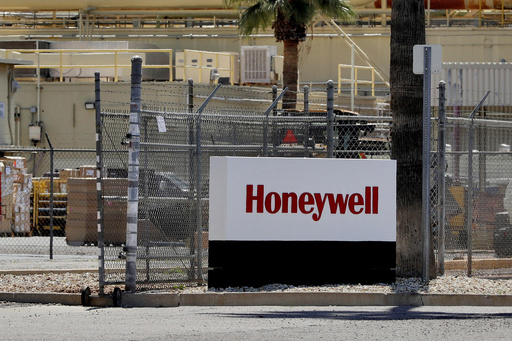Honeywell, a prominent American industrial conglomerate, has announced plans to divide into three distinct entities, joining the ranks of other manufacturing heavyweights like General Electric and Alcoa in restructuring their operations.
The announcement made on Thursday states that Honeywell will be separating from its automation and aerospace technology segments. This move follows previous intentions to spin off its advanced materials division, aiming to enhance the agility of each new independent company.
Vimal Kapur, Honeywell’s Chairman and CEO, expressed that “the creation of three independent, industry-leading firms builds on the robust framework we’ve established, equipping each to pursue customized growth plans and unlock considerable value for both shareholders and customers,” in a recent statement.
In December, Honeywell had signaled that it might spin off its aerospace division. This public confirmation comes shortly after Elliott Investment Management disclosed its investment of over $5 billion in the company, advocating for the separation of Honeywell’s automation and aerospace operations.
The board of Honeywell International Inc. has been reviewing strategic alternatives since early 2024. The corporation’s diverse production range, which includes products like eye care solutions and barcode readers, has prompted it to explore avenues for increased operational agility.
Since Vimal Kapur’s appointment as CEO, Honeywell has made several strategic shifts, including plans for the advanced materials business spinoff, an agreement to divest its personal protective equipment sector, and various acquisitions to streamline operations.
The division of the automation and aerospace sectors is set to be finalized during the latter half of 2026, while the separation of the advanced materials division is projected to be completed by late this year or early next year.
Like Honeywell, various conglomerates in the United States are under pressure from shareholders to simplify their structures, enabling each sector to adapt more swiftly to market fluctuations. Visionary CEOs like Jack Welch of General Electric previously expanded corporate empires, believing that larger scale equated to greater influence. However, these sizable enterprises now find themselves competing with leaner newcomers with clearly defined objectives.
Investors have also expressed a desire for more transparency concerning the priorities within each division, which often become obscured as companies expand. In 2015, Alcoa announced its intention to split into two independent firms, differentiating its bauxite, aluminum, and casting operations from its engineering and transportation divisions.
General Electric made headlines in 2021 with its announcement to separate into three publicly traded companies focusing on aviation, healthcare, and energy, signaling a potential end to traditional conglomerate structures in the face of a rapidly digitizing economy.
Following the news, Honeywell’s shares dropped nearly 3% before market opening on Thursday.




